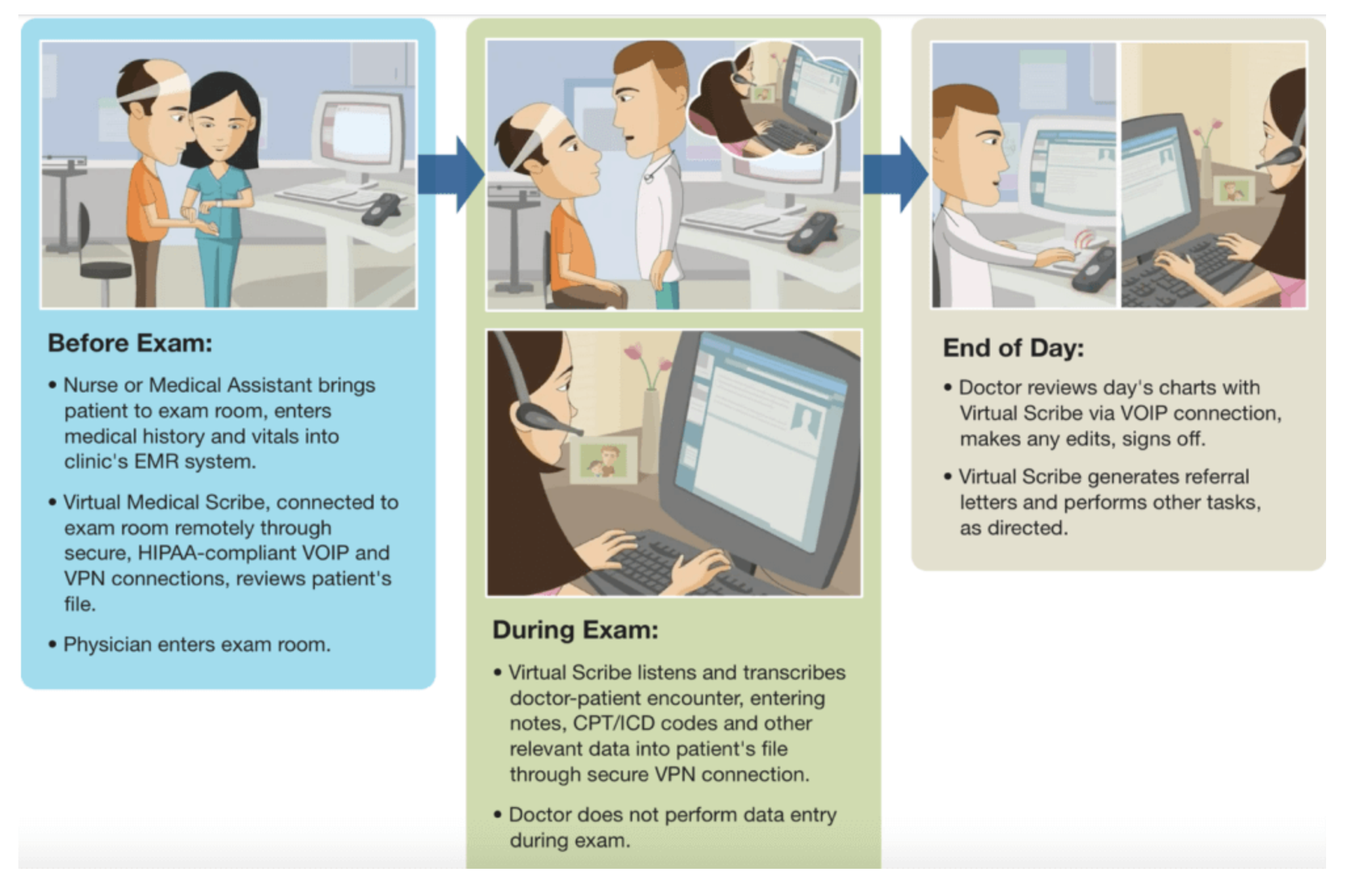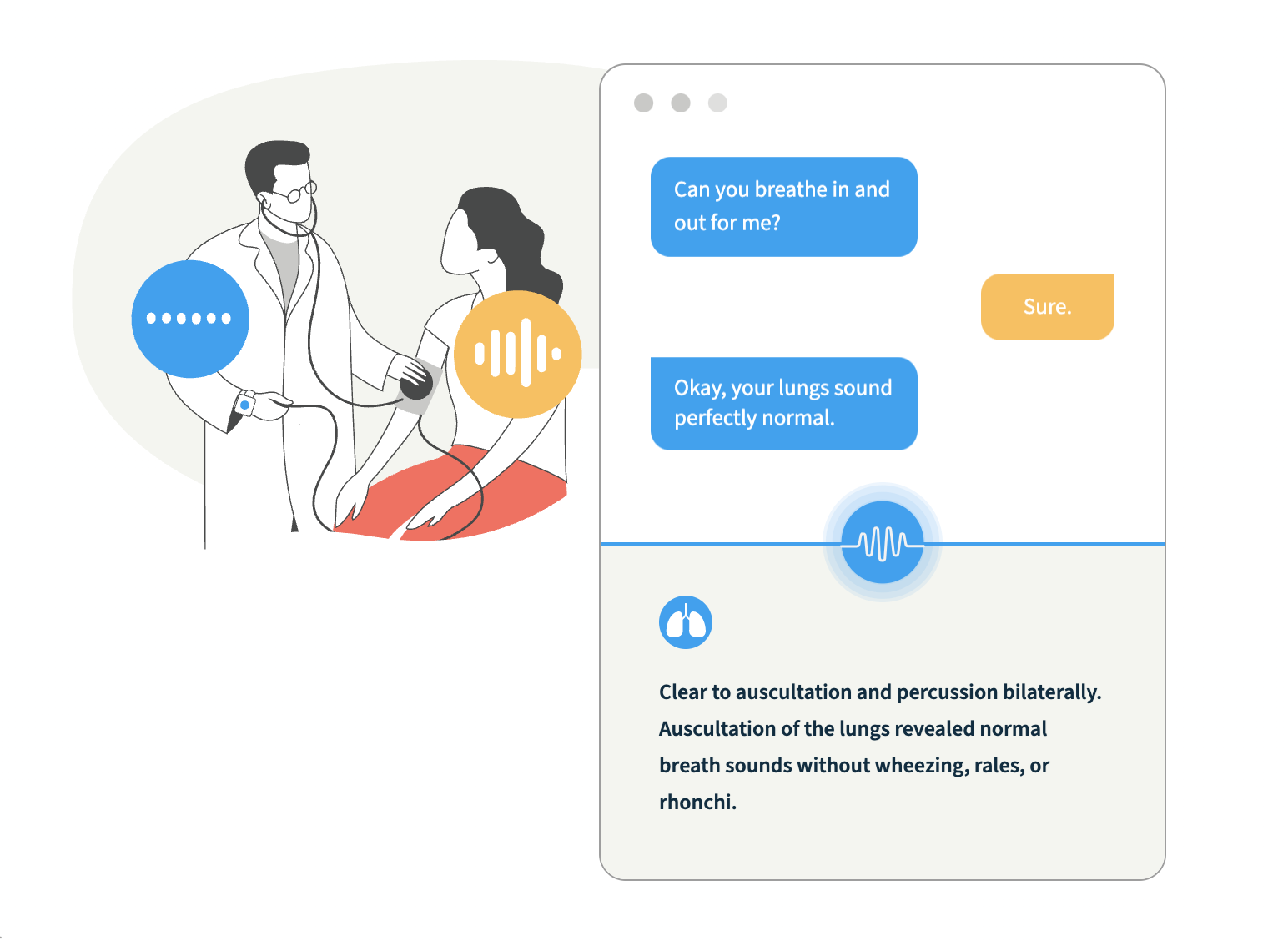In a Virtual World is a Virtual Scribe Really the Best Option?
What many providers may not be aware of is that when it comes to covid-friendly scribe services, virtual medical scribes are not the only option. AI Scribes offer an alternative, providing similar services without many of the disadvantages of virtual scribes.


In a Virtual World is a Virtual Scribe Really the Best Option?
Since the start of the Covid-19 pandemic society has undertaken a collective shift to a virtual world. While many healthcare professions do not allow for a fully virtual practice, it is still possible to shift certain elements of the business to an online capacity. In the interest of health and safety, for patients as well as providers, many doctors have chosen to switch from having an in-person medical scribe to a virtual medical scribe. However, while this switch has proven advantageous when it comes to Covid precautions, virtual scribes are not without their own set of unique challenges.
What is a Virtual Scribe?
Unlike a standard medical scribe, a virtual scribe provides administrative support without being present. As providers conduct a patient encounter, virtual scribes listen in and record all information via video conferencing or phone from an offsite location. In addition to helping clinicians adhere to social distancing requirements, virtual scribes boast a number of advantages over traditional medical scribes, including a lower price, a greater sense of privacy for patients, and increased flexibility of service.

Virtual Scribe Disadvantages: Cost
It’s no secret that in-person scribes are expensive often running a doctor upwards of $50,000/ year. Coming in at around $1200/month, virtual scribes are significantly less expensive than their in-person alternatives, but what many fail to realize is that the costs don’t stop there.
Both onsite and virtual scribe positions are a popular choice for students entering medical school to get in-field experience. The scribing industry is plagued by high rates of turnover as a consequence, forcing practices to take on additional costs to recruit and onboard a replacement.
Virtual Scribe Disadvantages: Training
As we mentioned above, scribe positions are commonly staffed by students who have little to no training or experience. Some third-party staffing companies have established internal training programs that their onsite and virtual scribes must complete, but these programs receive little to no regulation or guidelines from federal agencies. As a result, studies have shown significant inter-scribe discrepancy in notes taken for identical patient encounters.
Virtual Scribe Disadvantages: Security Risks
In the medical world data privacy reigns supreme so when it comes to offshore data transmission as a result of employing a virtual scribe, there are significant risks involved. It’s common for virtual scribing agencies to employ the majority of their scribes offshore, increasing the breach susceptibility of sensitive patient health information. In addition to data security concerns, young and under-trained scribes have an increased risk of making critical errors which could have disastrous results for both providers and patients.
An Alternative to Virtual Scribes

What many providers may not be aware of is that when it comes to covid-friendly scribe services, virtual medical scribes are not the only option. AI Scribes offer an alternative, providing similar services without many of the disadvantages of virtual scribes. AI Scribes will cost a provider far less than a virtual scribe, while also mitigating training and security concerns. Clinicians can feel confident knowing their AI Scribes have been trained on the industry gold-standard, and are continuously being updated with the newest information and practices. Furthermore, unlike virtual scribes, AI Scribes are free from human error and present far less data security risks.

So if you are looking for a socially distanced scribe who won’t leave you in a few years to pursue their own medical career, it might be time to give an AI Scribe a try!
text
Related Stories
Realize the full potential of Healthcare AI with DeepScribe
Explore how DeepScribe’s customizable ambient AI platform can help you save time, improve patient care, and maximize revenue.




